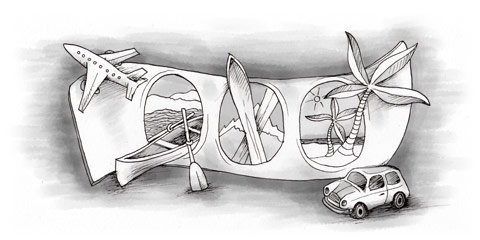Police cars sometimes display messages to motorists behind them via a panel inside their rear windscreen, e.g. ‘Seatbelt’, ‘Reduce Your Speed’, ‘Do Not Pass’, ‘Accident Ahead’ or ‘Follow Me’. Undercover police also wear plain clothes and drive unidentified cars. If someone in plain clothes stops you, wait for identification to be shown before unlocking your car door or winding down your window. Never antagonise a police officer or make any smart cracks, as this is the fast lane to prosecution. If you remain courteous you may be let off with a caution. If you think you haven’t committed an offence and wish to contest it in a court of law, don’t accept a fixed penalty notice, but ask for a full charge to be brought against you.
You aren’t required by law to carry your car or motorcycle papers when motoring in the UK. However, if you’re stopped by the police (for any reason) while driving, they may ask to see the following:
- Driving licence (British if held);
- Vehicle registration document (log book);
- Test certificate;
- Insurance certificate (or an international motor insurance certificate, if you drive a foreign-registered car).
If you don’t have your papers with you when stopped by the police, you must take them personally to a police station (named by you), usually within seven days. They mustn’t be sent by post.
This article is an extract from Living and working in Britain. Click here to get a copy now.


